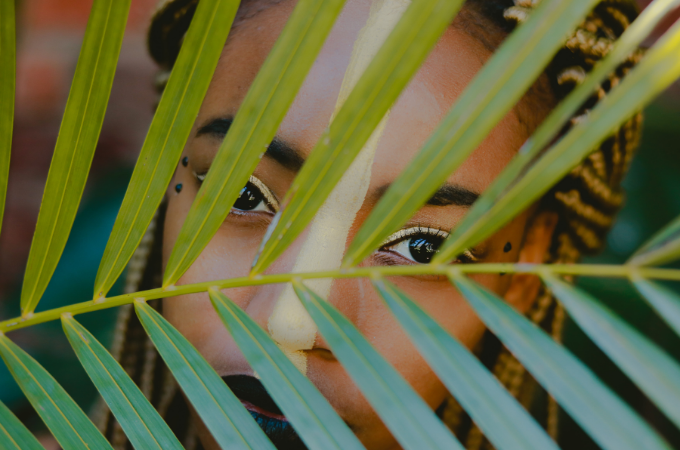
Nkemdilim stared into the dark, thinking how just like her mother she was becoming. As a child her grandmother would tell her how much she looked and acted like her mother, and she would smile, happy. But now that she saw it clearly herself, saw the signs that told her she was an extension of her mother, saw her mother’s face staring back at her whenever she looked in the mirror, she began to wish she didn’t. To make it worse, here was Uchechukwu, her boyfriend, asking her to meet his people. What if they noticed? Uchechukwu saw her through rose tinted eyes, but she wondered what would happen if the tints were to come off. She couldn’t bring herself to tell him about it all, she was sure she would lose him too just like she was losing everything.
Uchechukwu could tell something was wrong. He had been speaking to her for a while now and she had lain quietly, staring into the dark, without a response.
“Nkem, what’s wrong?”
Silence.
“Nkem have I said anything to upset you?”
“No. I’m just tired and sleepy. Sorry, what were you saying?”
“Nne, my mother’s dying to meet you. When would you be able to come to Enugu?”
“By this month’s end, I will be done with my sewing classes. Now let’s get some sleep,” she said quickly.
He drew her close to him, searching her eyes. She didn’t know what he was hoping to see in her face in the dim light. But whatever it was he was searching for, he must have seen, because he sighed, planted a peck on her cheek and nuzzled her neck. Minutes later she heard a low snore from him. She sighed. She doubted he would still insist on taking her home to his family if he found out what was wrong with her.
Nkemdilim had always known something was not right about her; the scary dreams and “spiritual attacks” put that in her mind, and like a flickering bulb the knowledge would come and go, eventually staying steady during her study in Ibadan.
It began with poverty of speech, and then no speech at all, no matter how much she tried. She was a Master’s student, and yet struggled to explain the simplest of things. Her embarrassment took new heights, when one day in class, she spoke to Waliu, her course mate, in a language neither of them could understand. Igbo and English were the only languages she spoke and so the strange words and Waliu’s quizzical stare worried her. She was explaining a poem they read for the Oral Poetry in Africa examination that morning, but they both couldn’t understand what she was saying; it was gibberish, the language of excited toddlers. Waliu’s attitude towards her afterwards was guarded; he was still friendly with her, but Nkemdilim knew that it was a friendliness pulled back by caution. She would go home that day after the examination and cry because it was winning. Whatever was happening to her was winning against her and gaining control over her mind. She weakly consoled herself when she came to by remembering what her mother was fond of saying whenever her mother-in-law called her mad: We are all insane in this world, some people are just unfortunate to have their cases naked for all to see. The rest still wear clothes and act normal, but time is a revealer.
She hadn’t always been this way, hadn’t always felt like a child scrambling in the dark for a lost marble. She used to be a ball of cocky laughter in her undergraduate years at Unizik, so, although she retained her usual cold, self-assured exterior that made her course mates call her “feminist,” inside she was a crumbling wall. The changes showed, especially during class presentations when her voice became a shaky affair, making her will the ground to cave in and swallow her up.
She took up sewing classes in Ibadan, a month after her Master’s program and was faring well, almost forgetting her episodes, but when Uchechukwu called to tell her he would be visiting, she panicked and almost told him not to, because she feared her demons would come back and make a display for him. She found it difficult to relax when he came, afraid to let her guard down.
As a teenager, Cordelia, her mother, experienced similar issues. She saw people no one saw, fought and talked with them. Obi, the prophet of their Holy Blessed Sabbath Mission told Cordelia’s mother that her daughter was a spirit child, chosen by Chukwu to serve him. She was only being tormented by her agwu, which needed to be tamed in order to have her normal again. Agwu was a gift from Chukwu, the great God, which He bestowed on people He chose. Those who were “afflicted” with the spirit of agwu were to become diviners or spiritual healers, and if they didn’t, misfortune befell them.
Cordelia agreed to her call and served in the mission as an auxiliary worker, so her agwu was tamed until she married a man who did not share her faith and who stopped her from working at the church. Her agwu as a result afflicted her with madness, making her a subject of ridicule in her husband’s house. The ill-treatment she received from her husband and mother in-law further aggravated her state, drowning her in depression.
When Nkemdilim was a child, her mother was sent back to her family who sent her into a mental institution in Nawfia. Nkemdilim’s father would remarry, leaving her and Okwudili, her younger brother, in the care of their grandmother who never mentioned their mother’s name to them no matter their questions, save for only the times when she looked at Nkemdilim and couldn’t hold back from telling her how she was every bit her mother. Their mother’s brother, Maduka, would come later and take them to live with him in Abuja. And so, slowly, like a weak fire, memories of Cordelia dimmed into darkness in the minds of her children.
The only vivid memory Nkemdilim had of her mother as a child was of her consoling them whenever they hugged her and cried from the tongue-lashing she received from husband and mother-in-law. She would wipe their tears with her wrapper and console them by saying she wouldn’t go naked and join the mad people on the streets like her mother-in-law suggested she did, because she wasn’t mad. But even if she was, so was everyone, some people were just more unfortunate than others. “Umu m, don’t cry, your mother isn’t a naked street roamer and will never be one. Remember what the mother cricket said to her children while they cried in the can of hot water — rapu nu, ife di oku ya emesia juo oyi. Whatever is hot now will be made cool soon.
They woke up early and made for the park. It was 7:10 a.m. when they got there and Uchechukwu was the last passenger to board.”I will call you when we get to Ore,” he said, planting a light kiss on her lips. He got into his seat in front with the driver. As she watched the bus drive off, she thought how cruel it was, for nature to give her Uchechukwu with one hand, and then try to take him from her with the other.
They had met two years ago at her friend’s traditional marriage ceremony in Awka. She sat chatting with her fellow asoebi girls amid the loud hearty chatter of the congregation and blast of the speakers, but was distracted by the sight of the fair young man sitting under the green-colored canopy with “BRIDE’S IN-LAWS” written on it.
He had on sunglasses, but she felt he was staring at her too, and that was confirmed when he stood up and walked towards her and begged to speak with her. The full length of him! His sitting profile hadn’t prepared her for his full frame; he was 6ft.5, putting her 6ft to shame. They grew to become inseparable. He was unlike the guys she had dated — he never had her confused as to what he wanted with her. He became all the more serious over the past months and therein lay her worry; that she would fail him, that she wouldn’t be able to give him all he gave her unreservedly. Uchechukwu didn’t deserve her — a wife whose brain was slowly liquefying, a wife who was “off” sometimes. No matter that her parents’ marriage had been nothing to write home about, marriage to her was a happy place, not a place to take one’s insanity.
Deep in thought, she didn’t see the motorcyclist that sped towards her as she made to cross to the left side of the road where she would take a shuttle back to her lodge. “You no dey see? I for just jam you now, ashawo.” That made her smile. Calling her a prostitute wasn’t befitting of the situation, he should have called her a mad girl instead, it was more appropriate, considering…
She crossed over and walked towards a keke.
“Osajin.”
“Osajin, drop?”
“Yes.”
“Pay 500.”
“Okay, lets go.” The keke man remained where he was.
“You no hear me? I say make we go please.” He scratched his head and laughed and got into his keke.
“Forgive me fine aunty, you know say as I never chop this morning, even last night, my head dey one kain now.” It wasn’t lack of food. It was because she had agreed to the ridiculous price without a hassle, even though she knew the price was 200 Naira. Her phone rang. It was her mother. She put it on silence.
She hadn’t spoken to her mother for a while now, not since their last heated argument a month ago, after her graduation. It wasn’t that she didn’t want to speak with her, she did, but was restrained by guilt over what she said during the call, over the realization that she did her wrong. She had called her mother that evening, to tell her about her intentions to visit a dibia.
“Dilim kedu?”
“Mama a di m mma, good evening.”
“I di kwa okay?”
Silence. Then, “Mama, it has started.”
“What has started Dilim?” Cordelia’s soft voice rang low.
“I am not normal. It has started. What that prophetess said.”
The breath that stretched between them before Cordelia asked “what prophetess?” told Nkemdilim her mother remembered but didn’t want to broach the topic.
When Nkemdilim and her brother lived in Maduka’s house, a prophetess from their Sabbath Mission, came to their house to spend the night and pray with them. While praying, she prophesied, calling each member of the household by name. When she got to Nkemdilim, she told her she and her mother had a similar spirit and she was going to go mad in her early twenties. There, it had come, a ticking time bomb, with no detonator in sight. But her Uncle’s face had shown he was expecting a solution to the problem, so the prophetess had given it — seven coconuts were to be bought and the water and coir used to wash her head for seven days. When Cordelia became stable enough to leave the hospital and live with her mother in her hometown, Nanka, she asked that her children be sent back to her. Nkemdilim told her about the prophecy and the proposed solution, and Cordelia performed the ritual, bathing her head with coconut water for seven days. “Nwa m ife melu m agaghi eme gi, what befell me will not befall you,” she prayed as she washed her head, asking her to say “Amen.” And then the matter was forgotten. Nkemdilim graduated from Unizik at twenty-six with no sign of the promised insanity and so she had smiled, mocking the prophecy.
“Fine aunty, we don reach Osajin o, where be your street?”
“Oh,” Nkemdilim said, roused. “Oya enter this left side. Beside that mosque, yes.”
It was a rocky drive to her gate. The bad road was “fixed’”by the local government with sharp-edged stones — menace to car tires. He stopped in front of the rusty black gate she indicated. She paid him and got down.
“Fine aunty, thank you o. You want make I give you my number to dey come pick you whenever?”
“No, thank you.”
“Ah, okay. Oya bye-bye.” He reversed and fought through the stones.
She opened her door and went in, inhaling the strong smell of her drummer air-freshener. Hers was a small room, white, furnished sparsely in the typical student fashion, with the only remarkable thing being her bookshelf. It was shaped like the African map, with about eight partitions for books. Nkemdilim was proud of it and intended to have a bigger one later on when she became a professor. She had paid a carpenter who constructed it in her second year at Unizik. She took off her clothes and slumped on the bed, hugging her pillow. Her phone rang again. It was her mother. She let it ring.
The books on Igbo ontology she read during her study in Ibadan said her case was a culture-specific one better handled by a dibia and not by doctors in modern hospitals. She had called Uncle Jamie, her father’s brother, who was a traditionalist, and narrated everything to him. He listened calmly while she spoke, and afterwards, offered to take her to Ndukaonwu, the dibia in their hometown, Eziowelle, because Ndukaonwu “would know what to do about it.” She mentioned this to her mother in that last phone conversation, telling her about her plans to visit Ndukaonwu with Uncle Jamie when she came home. Cordelia rained hail on her, threatening to disown her if she went ahead with it.
“Nkemdilim, fie isaa n’anya. Do you hear me? Be very careful. Don’t allow your confused Uncle lead you into evil. Don’t you know that he is onye ogo mmuo? I maro? Your too much book reading has made you foolish. You think you are smart, not so? Don’t ever bring up this topic again, do you hear me? Come home and we will visit Prophet Dan and go to the hospital.”
Cordelia’s heavy breathing was the only sound in the silence that threatened to snap the invisible cord of their conversation.
“And I am sure you have not been using the coconut water, for a while now or have you?”
And that did it for Nkemdilim. The idea that her sanity could be controlled by a liquid from a cheap fruit.
“Mama this needs a dibia. They understand it better. Yours was only half cured because we didn’t consult a dibia. Uncle Jamie said so. They have the answers, Mama, answers beyond the trained eyes of these doctors you want me to visit.”
“So Dilim, because of this issue you want to turn your back on God? You want to be a child of the devil and visit his agents? Do you forget we are Christians, children of God?” Religion was a chain on her mother’s feet. Nkemdilim told her their ancient ways were not evil. It was merely tagged so for the wrong reasons.
“Mama, there was a speech made by Lord Macaulay to the British Parliament in 1835. I will show it to you when I come back so you will understand all I’m trying to say,” she told her mother.
Cordelia’s threats only grew, so Nkemdilim had said it.
“All that is happening to me now is because of you. You gave me your madness. Everyday I wish I had a different mother, a mother who was normal.’
The silence fell between them again until Cordelia said, “Nwa m kedu ife m melu gi? What did I do to make you say these words to me? I did not create myself and neither did you. If I had that power I would have created a better life than this one I was given. You may have chosen a different mother had you the choice, but nwa m, I am your mother, you will never have another. O gwusia ife m nwelu igwa gi. That is all I have to say to you.”
Nkemdilim had cried afterwards, drowning in the guilt that prevented her from calling back to apologize. She saw it then, that her mother had been a mere pawn to nature, just like herself. Her insistence on having her visit the hospital was only all she could do to help, all she knew.
She received a message from Uchechukwu — their bus had a flat tyre, the driver didn’t have a spare, so they had to push it to a mechanic. They were lucky that there was one close by. The network signal in that area was weak, so he couldn’t call her. She thought then that just like she treated her mother, she had treated Uchechukwu badly. She had been selfish all along, thinking only of herself. She had hidden who she was from him, not allowing him to make the choice of being with her, warts and all. She decided to tell him about it all, starting from the very beginning, to allow him decide on traveling the road with her. That much she owed him.
Her phone rang again, this time she picked it up, sitting up on her bed.
“Dilim… Kedu?”
“Mama… I’m sorry. Please forgive me.”
“O di mma, let’s forget about all that. Iwe nwanne anaghi elu n’okpukpu, remember?
I have been thinking, if you have decided to visit the dibia, I will not let you go with your Uncle alone. So come home when you can, and we will go and see Ndukaonwu. I have spoken with Jamie, he says Ndukaonwu stays in his father’s obi now, very close to Eke market.”
Cordelia always settled disputes between her children, with the Igbo proverb: Iwe nwanne anaghi elu n’okpukpu – anger for a sibling/loved one is never bone-deep.
Nkemdilim thought her rift with her mother irreconcilable, and in her guilt and fear, forgot that somethings could neither be changed, nor destroyed, not by fate, not by anything.



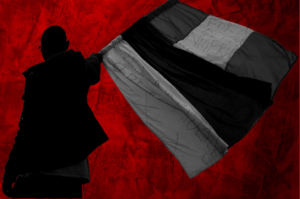
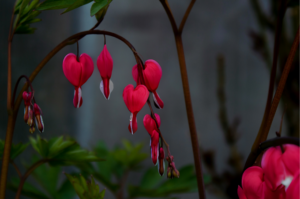
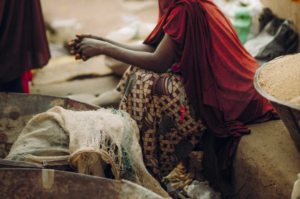
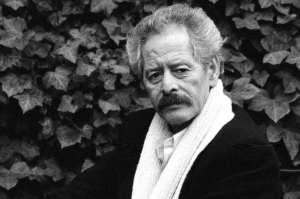
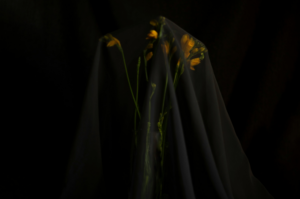


Emeh Chizy chris June 26, 2021 18:20
Nnem may the most high increase you.......